Spin-off series: I Am The Future Of The Bar
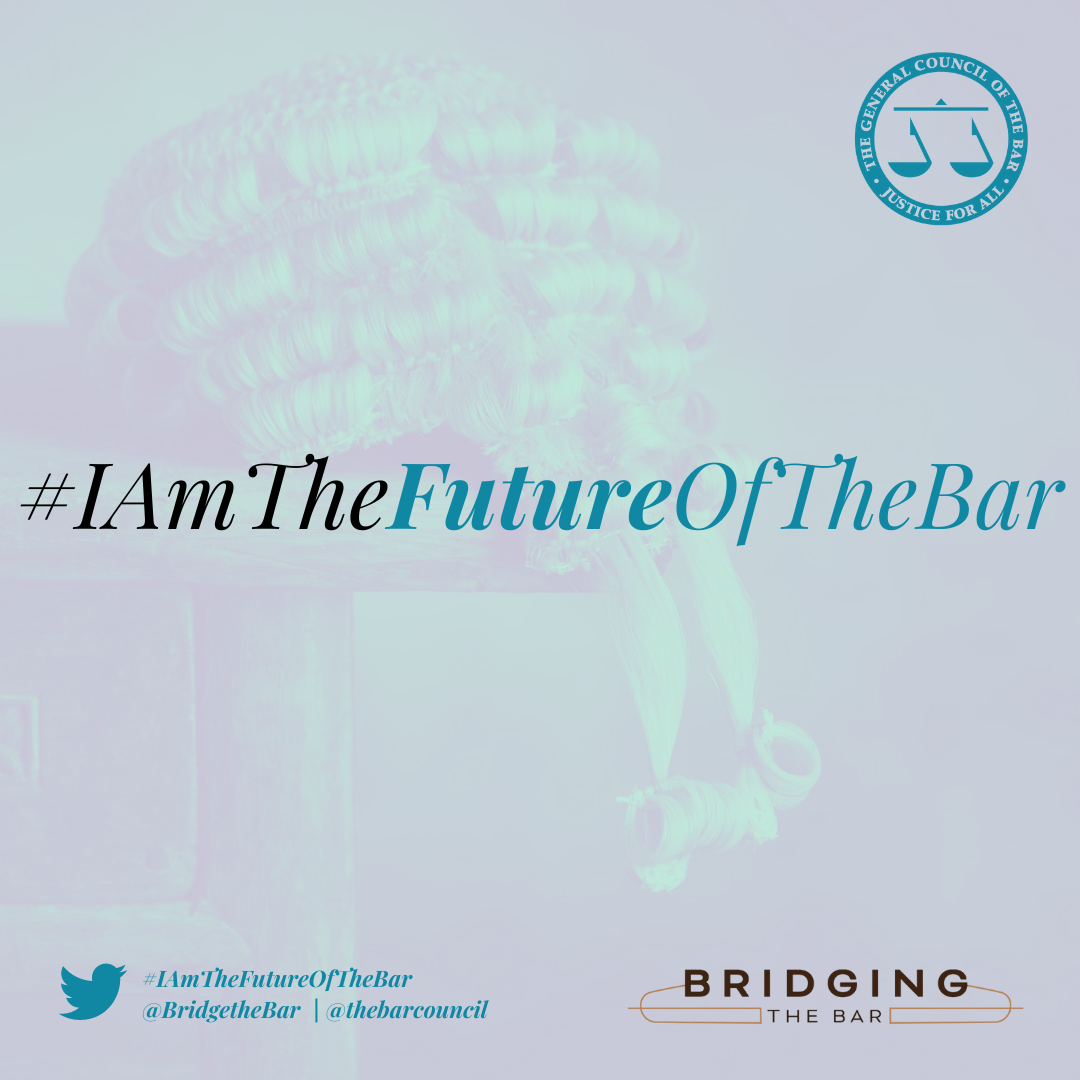
Heard of #IAmTheBar? Now it’s time for us to shout about the next generation of barristers.
In #IAmTheFutureOfTheBar, launched by the Bar Council and Bridging The Bar, aspiring barristers share their stories and highlight the importance of diversity and inclusion within the profession.
Read their stories below.

Please write a bio discussing your background, experience, ambitions and goals.
My story is, in many ways, humble. I grew up in a working-class family, attended a bottom-performing comprehensive, and had my current studies blighted by the illness of my father. In this I am little different to countless others. Yet I have also distinguished myself – I have made it onto the Oxford BCL; I have become one of the first law students to undertake an internship at the UK Supreme Court; I have been mentored by the first female judge appointed to the Commercial Court. In 2017, I was awarded the Alumni Association Award by the University of Bristol. My prize was a private dinner with Baroness Hale. We discussed the inclusion of women at the Bar and the Constitutional Reform Act. After dinner, she told me: “I look forward to seeing what you do next.”
In 2020, I was mentored by Dame Elizabeth Gloster, a now-retired Lady Justice of Appeal and the first woman appointed as a Commercial Court judge, via One Essex Court’s Mentoring Scheme. I learned much from her black-letter knowledge. However, I also learned the value of persistence, strength of character and a devotion to the bettering of the commercial Bar. This year, I will become one of the first to undertake an official internship at the Supreme Court, during which I will prepare a bench memo for an assigned Justice. This unprecedented opportunity was afforded to me by ‘Bridging the Bar’. Ultimately, I aspire to practice as a commercial barrister in London and I see myself being part of the vital service it lends not only to private parties but to the functioning of the state. To answer Baroness Hale: I, too, look forward to seeing what I do next. Bridging the Bar has proved a critical step in the next chapter of my story.
Let us know how BTB campaigns and projects have impacted you.
I have been both a mentee and a mentor in turn. I have mentored several A-Level students from my old secondary school, Hailsham Community College. Bridging the Bar has offered me an elevated platform from which to gain unparalleled experiences, but also to help my community in turn.
What does diversity and inclusion mean to you?
‘Diversity’ and ‘inclusion’ are ultimately about empathy. They demand that we look at the world from another’s perspective. This includes class, geographical location, family structure, belief, and education. This is complementary to our ability as lawyers to approach a legal problem from a perspective other than our own.
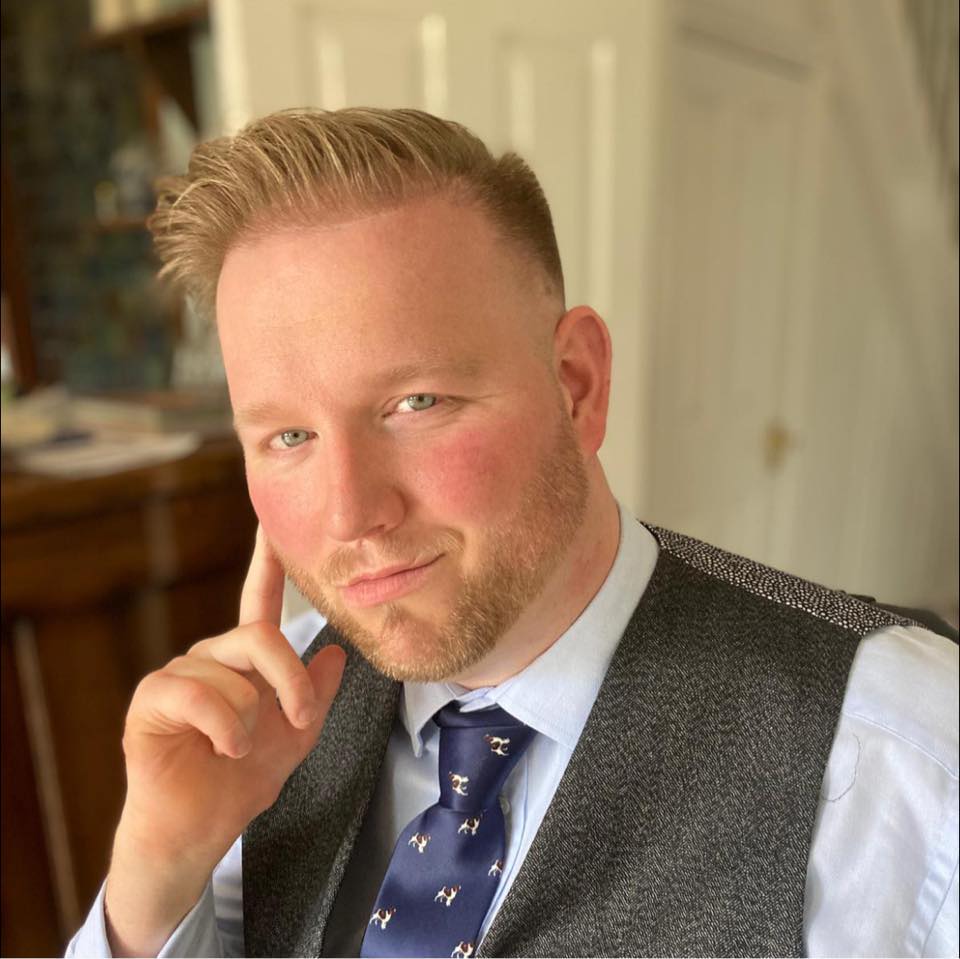
Please write a bio discussing your background, experience, ambitions and goals.
I grew up in a deprived part of East Anglia just outside Lowestoft. I went to state schools, culminating in a comprehensive school with a destitute rural intake. The people I went to school with were nice but unambitious, some were criminals at a young age. I was the first person in my immediate family to progress past GCSE\O-level onto A-level. When I was 17, I was hit by a drunk driver and paralysed from the neck down, despite this I was able to sit my A-levels while in head traction, dictating to a tutor in a hospital in Sheffield. I came top of my year.
Once released from hospital I undertook different A-levels, this time in science. As a result, I was able to progress onto university through various scholarships and bursaries which eventually culminated in a PhD. It was only after I had finished my PhD that I realise that my strengths were in public speaking and debate. I then began my journey to the Bar, I realised very quickly that trying to do this in Norwich was not easy; I spent 2 years commuting 4 times a week over 2 days to undertake the BPTC, all while trying to hold down employment and find legal opportunities for my CV. COVID-19 then struck in the middle of my BPTC and being clinically vulnerable I was then imprisoned in my house, I had to continue studying without any support from my provider or peer group while at the time keeping dark thoughts of COVID-19 at bay. I completed the Bar in the spring; in some ways I cannot believe I actually got to the end of it in one piece. I now look forward to hopefully applying for and being accepted for pupillage in the not-too-distant future.
Let us know how BTB campaigns and projects have impacted you.
People are unaware of the soft skills they learn coming from and mixing the right circles. You are immediately on the back-foot and are more readily susceptible to “imposter syndrome” if not. Although unsuccessful in applying for schemes, the feedback, they have offered has been invaluable.
What does diversity and inclusion mean to you?
Diversity and inclusion means equality, everybody good enough should be given the same opportunities! The Bar should be as diverse as the clients it serves; anybody willing to work hard enough can find a place at the Bar. The current generation of barristers must increase inclusion for the next.
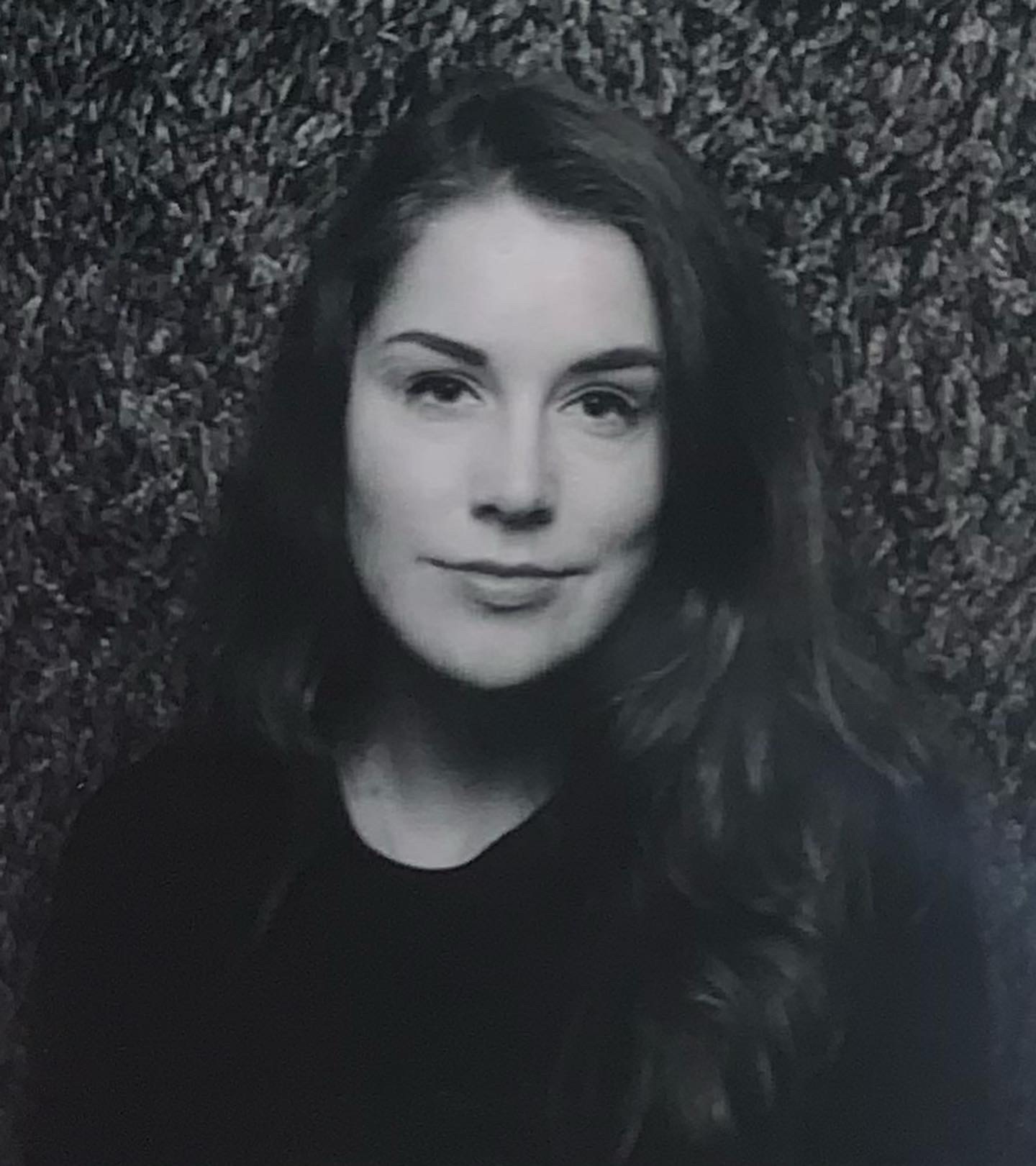
Please write a bio discussing your background, experience, ambitions and goals.
My name is Paige Taylor, I come from a low-income, single-parent family and went to a state school (which was in special measures) up until the age of 16. Since the age of 12, I was a young carer for my mother who had a host of health conditions. Due to her ill health, she had to give up work and we lived on benefits. When I was 16, I took the initiative to approach a private school and to tell them my story, in the hope that they could help provide a sixth form education, and short respite from my caring responsibilities. Upon consideration of my personal statement, and their belief in my academic potential, I was afforded a 100% bursary to attend the school for two years.
I am now a bursary ambassador for the school, in raising funds to afford people like me the same opportunities. Just before starting University, my mother had her first stroke, and my role as carer expanded to speaking on her behalf, and upon turning 18, becoming her power of attorney. I continued to represent her interests and advocate for her until she passed away in February 2021. The responsibilities given to me at such a young age fuelled my interest to study the Law and to find other ways I can advocate on behalf of those who cannot do so themselves. I decided that becoming a barrister was for me whilst at university, having met barristers in the profession and participating in various mooting competitions. I am currently studying the ICCA Bar Course and hope to obtain pupillage at a mixed civil practice in the near future.
Let us know how BTB campaigns and projects have impacted you.
Bridging the Bar has offered me a valuable support network to gain opportunities that I find difficult to obtain elsewhere. Its work does literally ‘bridge’ the gap within the Bar, to encourage anyone from any background, creed or colour can apply and succeed at the Bar.
What does diversity and inclusion mean to you?
Diversity and inclusion to me is fundamental to success. To believe that opportunities are not open to you simply due to your income, disability or the colour of your skin should be something of the past and I am committed to ensuring that no stone is left unturned in furthering diversity and inclusion at the Bar.
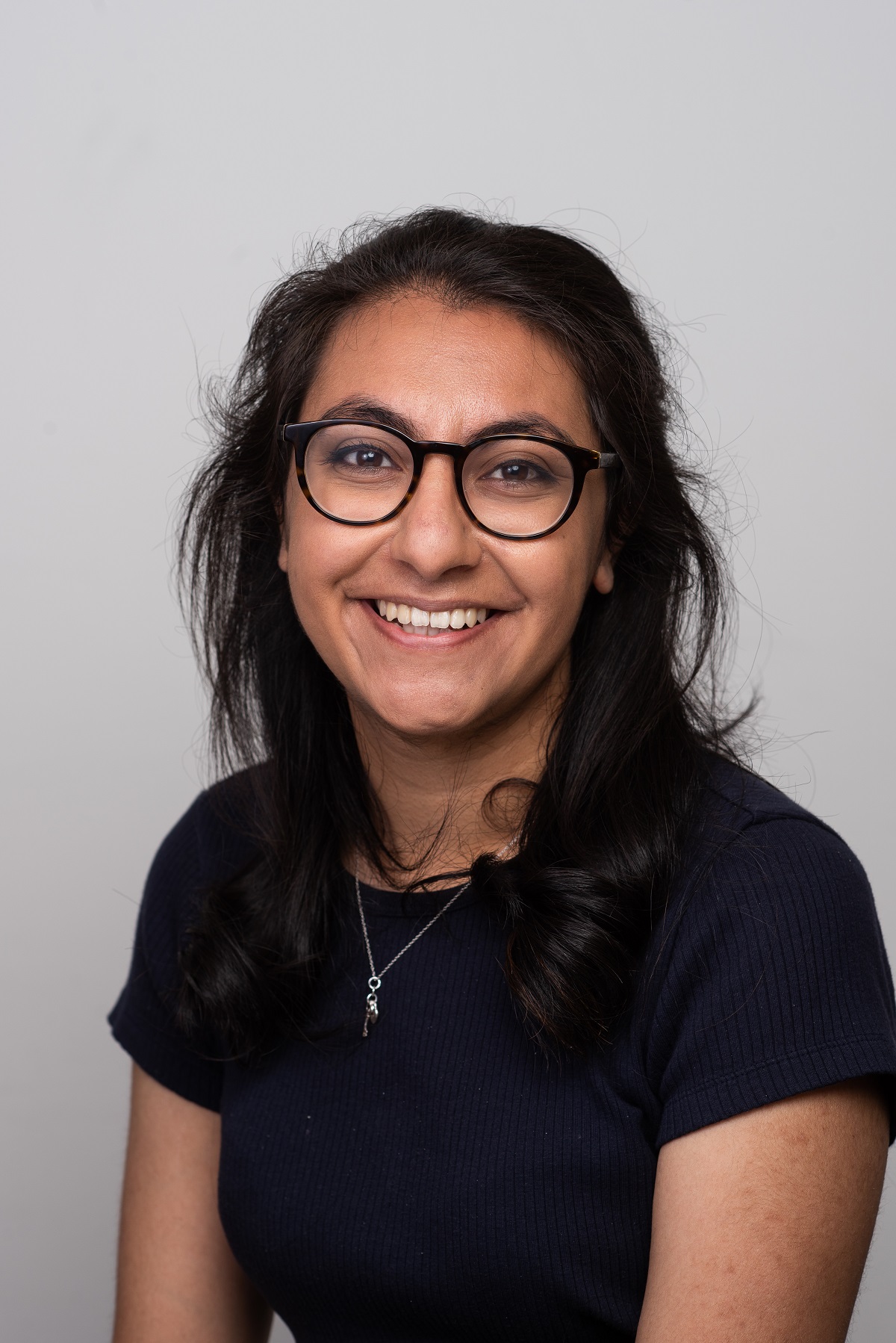
Please write a bio discussing your background, experience, ambitions and goals.
I am Zahra, a current BPC student with the University of Law in London and a visiting lecturer in contract law at King’s College London. I was born and brought up in Cornwall, an area which is not known for its ethnic diversity. As a South-Asian woman looking into a career as a barrister, I was struck by how this lack of diversity was mirrored. My desire to change this intimidating landscape has motivated to become a barrister and stand as a role model for other young women like me. I graduated from my undergraduate LLB degree at the University of Southampton with First-class honours in 2020, ranking in the top two in my cohort. I went on to read the Bachelor of Civil Law at the University of Oxford. Although, intellectually challenging, the BCL allowed me to further my interests in Commercial and Private law.
My experiences such as mini pupillages, marshalling Sir Nicholas Green in the Commercial Court and mooting about International Sales law on my year abroad at the University of Ottawa, have demonstrated the breadth of work in Commercial Law and has confirmed that this is the area I wish to practise in. Over the past year, the combination of lockdown and a genuine enthusiasm for Law, led to creating a TikTok and Instagram account creating content aimed at engaging other Law students during the pandemic. The account has since grown to include mental health awareness and humour. I hope to relieve some of the stress of the BPC and the pupillage process this year by continuing to make fun, relatable content.
Let us know how BTB campaigns and projects have impacted you.
I took part in One Essex Court’s ‘Women at the Commercial Bar’ Mentoring Scheme. BTB has helped expand this scheme to encompass all underrepresented groups at the Bar, encouraging more chambers to participate. My experience was invaluable and has made me appreciate BTB’s efforts in advertising such brilliant opportunities.
What does diversity and inclusion mean to you?
The words diversity and inclusion should be more than just a tick box exercise or quotas occasionally paid lip-service to. It means a proportional representation of society including factors such as age, gender, disability, and ethnicity in an environment where everyone is accepted regardless of such characteristics.
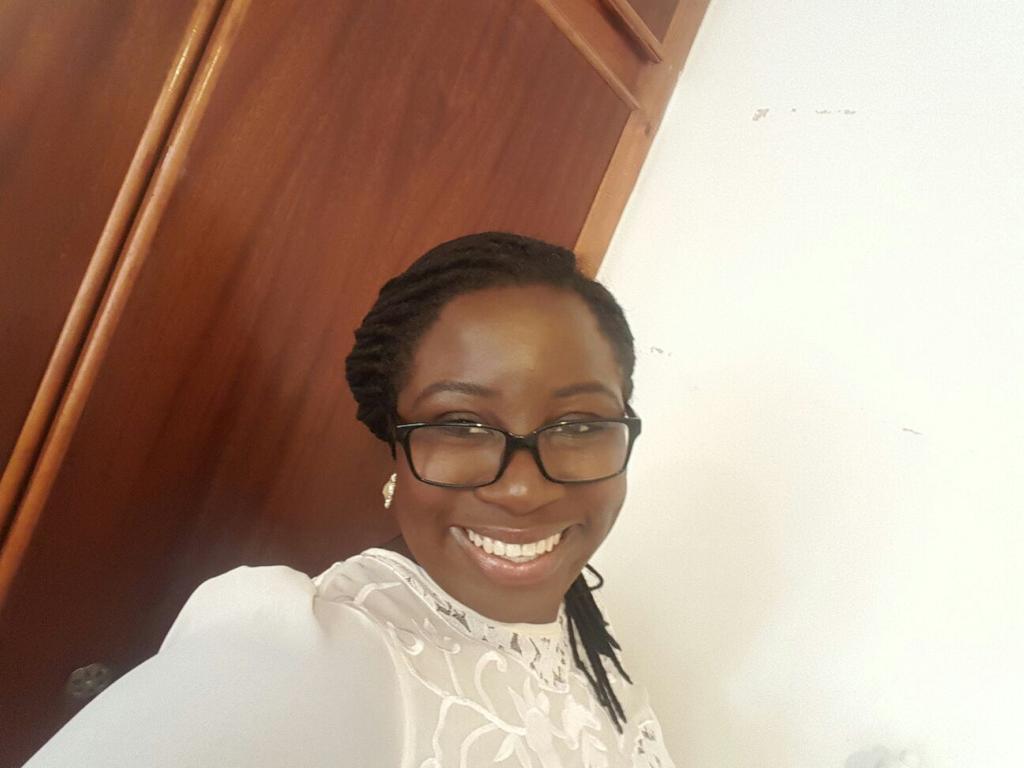
Please write a bio discussing your background, experience, ambitions and goals.
At 16 years old, I was pregnant. My mum assured me that I could still achieve my dreams, but it would be challenging. So, I worked full time and attended college in the evening. I passed the Access to Law course and enrolled on a part-time evening law LLB course. I loved the challenge, but then life happened again. Without warning, my mum passed away and I faced homelessness with my daughter. I struggled to complete my degree, the grief was consuming, but I kept trying. However, it felt impossible to balance being a good student with being a good mum. Parental guilt is real, and it did not help when another mum remarked at school that I was nothing more than a 'part-time parent'.
Following that, between the guilt, shame, and grief, I quit. I grieved I had two more children and threw myself into raising two children under two. Then life threw me another curveball; I lost my youngest daughter to SIDS. By the time I climbed out of the grief, I could not recommence my legal studies; I had to start all over again. So, I did! Post 30, I obtained a First-class Law degree through the Open University and completed a Masters in the Bar Professional Training Course. I am confidently awaiting my results. My journey has been a challenge and one of self-discovery. On this journey, I have developed discipline, resilience, and intellectual dexterity. I am a proud black LGBTQIA mother who has instilled and demonstrated, to my girls, all dreams are achievable with hard work. I will bring talents and skills to the Bar now that I could not have in my twenties. I am more passionate and dedicated now than I was then. I am proud; I am the future of the Bar.
Let us know how BTB campaigns and projects have impacted you.
The mentoring campaign had a profound impact on me. The campaign was a success, and the variety of mentees that participated made me realise that I can find my own space at the Bar and that there will be people I can and will relate to when I get there.
What does diversity and inclusion mean to you?
To me, diversity and inclusion (D&I) are where all people, regardless of creed, colour, gender, ethnicity, sexuality, age, and ability, are welcomed, included, and accepted. I recognise there is comfort in our similarities but greatness in our differences. The intersectionality between D&I fosters greater creativity, tolerance and enrichment.
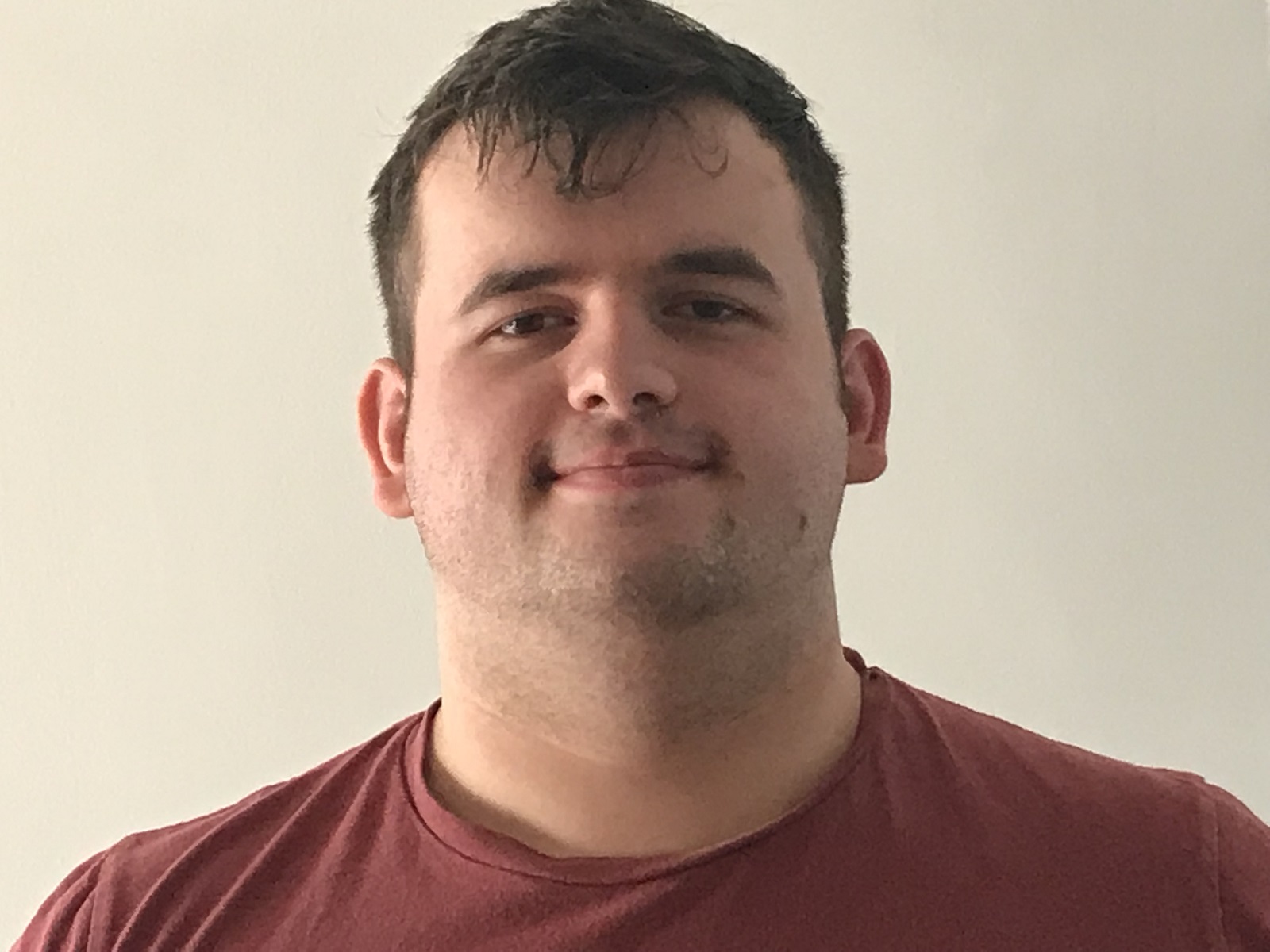
Please write a bio discussing your background, experience, ambitions and goals.
I am aspiring to be an Intellectual Property and Commercial Law barrister. I am the first generation of my family to have gone to university and have attended state schools throughout my education. I am determined to achieve my goal of becoming a barrister. In 2018-2019, I worked two jobs, equating to over 70 hours a week, to fund my LLM in Intellectual Property Law and the Barrister Training Course (BTC) demonstrating my determination to become a barrister.
I have now started the BTC part time whilst working in the field of Intellectual Property Law within the Civil Service. This has allowed me to develop the knowledge I gained from my LLM and apply my knowledge of legal proceedings to my role. This determination to become a barrister was recognised by BPP who awarded me with the career commitment scholarship which is only given to the most promising future legal professionals. I have also continued to strive towards my goal of becoming a barrister, albeit the COVID-19 pandemic, by participating in Bright Network’s Commercial Law internship programme, securing mini pupillages at Maitland Chambers (Virtual), Three New Square and Lamb Chambers. I have also participated in pro-bono opportunities with BPP and Legal and various mooting competitions such as the Oxford IP Moot, Rosamund Smith Mooting competition and the Vilnius Legal Challenge where my team was selected from fourteen international teams to progress to the semi-finals and we won the prize for best respondent memorandum. My goal is to secure pupillage starting in 2023 and I am looking for opportunities to further develop my experience to make me a suitable candidate for pupillage.
Let us know how BTB campaigns and projects have impacted you.
The BTB campaigns and projects such as the UK Supreme Court and Law Commission internships have allowed me to develop my confidence, legal skills and understanding of the barrister profession. It has also helped encourage diversity at the Bar by showing this profession is a viable career for all.
What does diversity and inclusion mean to you?
Diversity and inclusion means making the barrister profession accessible to all those who have the capabilities of becoming a barrister. Furthermore, the barrister profession should reflect current society meaning it should be multicultural, have a mixture of people with different backgrounds and not be seen as an elitist profession.
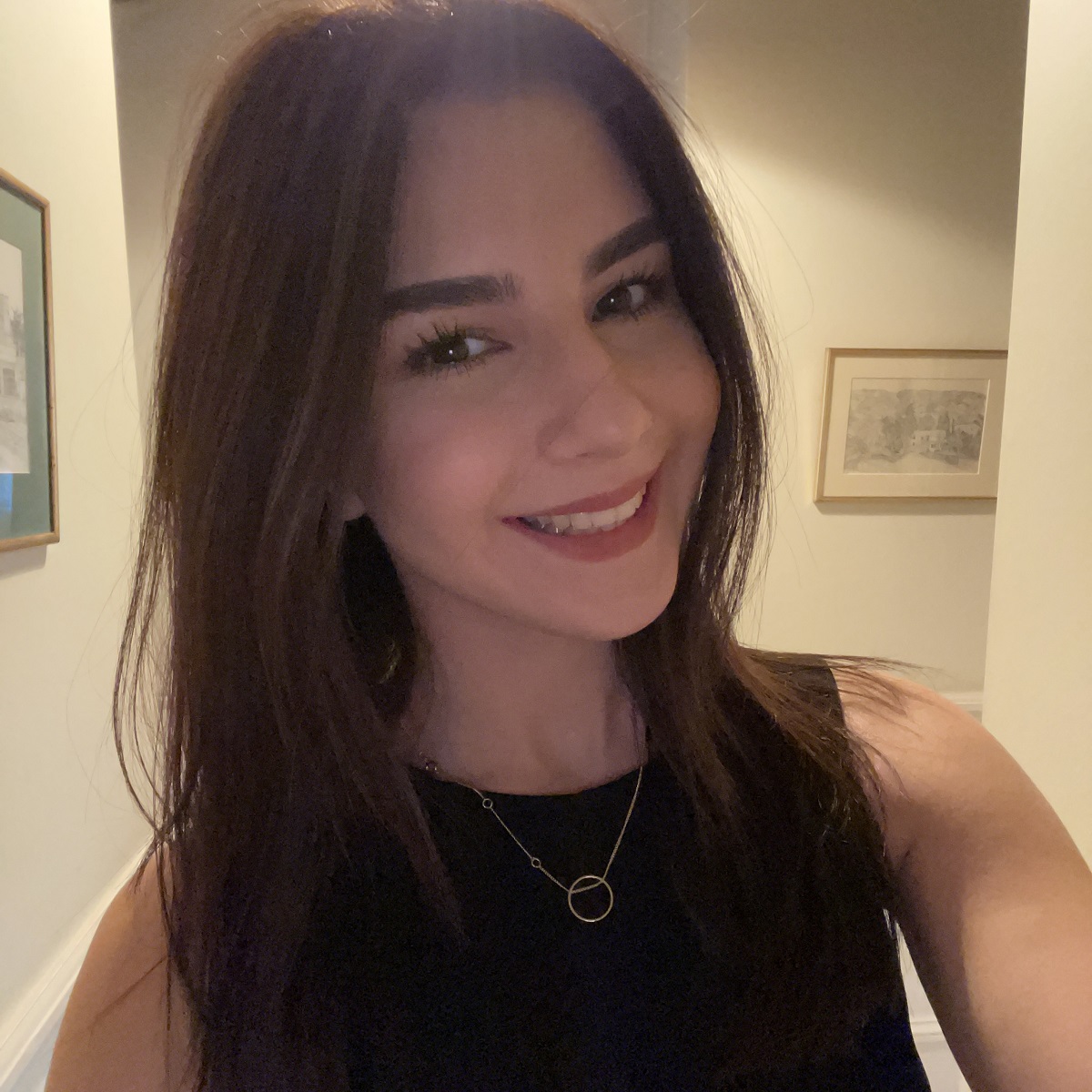
Please write a bio discussing your background, experience, ambitions and goals.
Giving voice to those who might otherwise find it hard to be heard is something I have had personal experience of as a child in care proceedings. I found that my voice was lost for a long period during proceedings and therefore I understood the immense sense of desperation simply to put my feeling and position forward. My own experience of representation, as a Gillick competent subject child in care proceedings, gave me an early appreciation of the role of a barrister. I look back at the representation I had and feel a true sense of gratitude, since to put a case so eloquently, so robustly for an individual is difficult, but to put forward a child’s wishes and feelings must be even more challenging.
My early and unique experience in Court coupled with determination through becoming disciplined in Karate and becoming the youngest European black belt, aged 9, catalysed a desire to learn the law in university and I soon acknowledged my ability within advocacy in my first year of academia by ranking highest against my classmates in our “Mooting and Advocacy” module, marked as “best legal analysis of the day” and “best of the day” by Gough Square Chambers. It is, consequently, because of the empowerment I had to use my voice and be heard through my barrister, that I pursue a career at the Bar, to have the opportunity to give thanks for the liberation I went through but mainly to be able to pass down to others what I received, others who may feel the same as I did at the age of 11. Being a family law barrister is to be part of the bar and profession, in which a circulation of thanks and help operates which I would like to be a part of.
Let us know how BTB campaigns and projects have impacted you.
The first time I applied for a mini pupillage was through the BTB. Although I was unsuccessful in being selected, I nevertheless received helpful and inciteful advice through constructive criticism allowing me to understand how to improve and make sure that my next draft would prove to be a success.
What does diversity and inclusion mean to you?
Some say that diversity and inclusivity is tolerance of the differences between us; I believe that it is about acceptance and recognition, enabling the accrual of a broader value and enrichment which can only improve and enhance the service the Bar provides. To represent any member of society, the Bar must reflect all members of society.
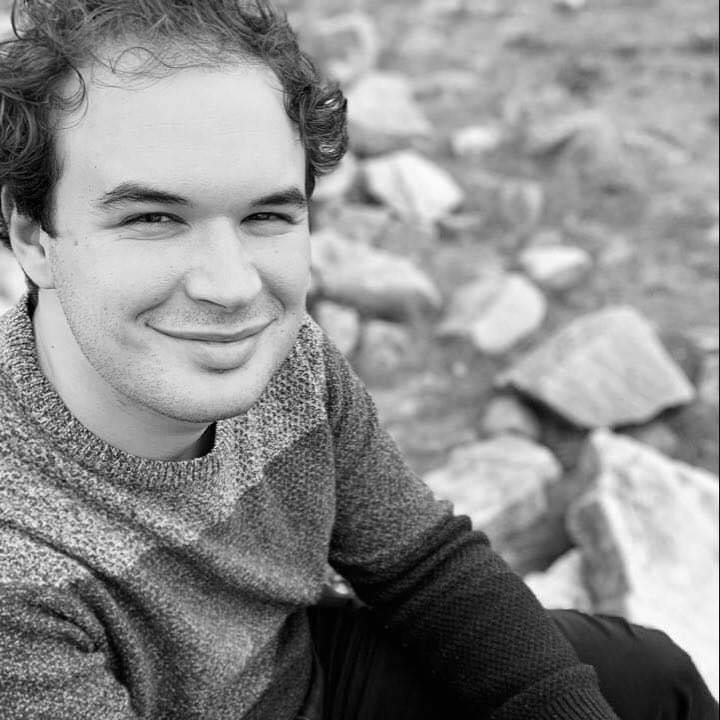
Please write a bio discussing your background, experience, ambitions and goals.
My name is Sam, I am aiming to have a career working in public, EU/Brexit, commercial, and competition law. Before starting my journey to the Bar, I was training to be an academic historian. I completed my M.Phil. thesis on the history of British Euroscepticism. I won the History of Parliament Trust Prize for my undergraduate thesis, which was a case study of a safe Conservative constituency won for the first time by Labour under Blair. I am passionate about widening access. This passion comes from my background. I went to state schools in inner London, and I am the first person in my family to pursue a career in the law. I work as a volunteer for widening-access schemes and acted as a mentor for prospective applicants.
My college recognised my academic achievements and voluntary work by awarding me the Larmor Award. I am currently running a series of law workshops for sixth formers at a London state school. I am particularly interested in constitutional law. At some point in the future, I would like to write, part-time, alongside my practice, a PhD thesis in the area of EU public law. I am currently completing the Bar Course at the Inns of Court College of Advocacy. This year I will be applying for pupillage at mixed commercial and public law sets.
Let us know how BTB campaigns and projects have impacted you.
I have benefited immensely from the BTB mentoring programme. My mentor, Beth Collett (8 New Square), has been such a source of wisdom and practical help. The value of schemes like this is that they enable those without connections to put a human face to the profession.
What does diversity and inclusion mean to you?
For me, diversity and inclusion have two sides to them. The first is about individual dignity – freeing individuals to realise their potential and pursue the life they want to live. A society, and a profession, where this is the case, will be richer for it.
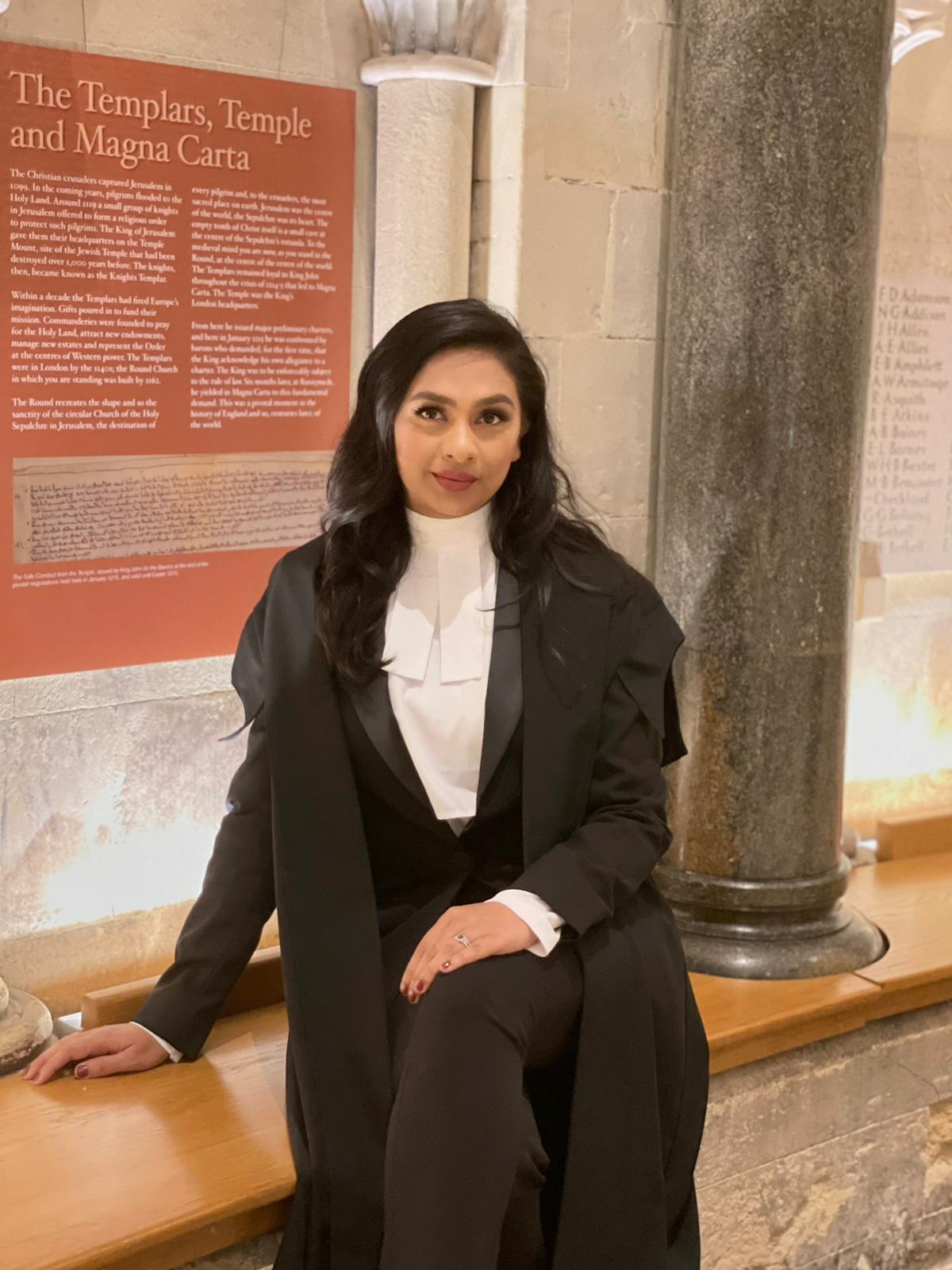
Please write a bio discussing your background, experience, ambitions and goals.
My journey to the Bar has been unconventional in that I started my journey with a 4-year-old already in tow and a second child on the way. I had my first son during the first year of my LLB and my second son during the BPTC. Pursuing an education with young children can be daunting in of itself, let alone legal education. A fine balance between day care schedules, family schedules and University schedules needs to be maintained in order to get any sort of work done. Add on the need to mini- pupil, network, gain relevant legal experience and you have a recipe for potential disaster! As a young parent I was told by almost everyone I met that it would be impossible to pursue a career at the Bar with young children - especially earlier on in my career.
Despite being pregnant during the pandemic I managed to pass all my Bar exams on the first attempt. All this was possible due to the support from my mentors and professors who didn’t disregard me because of my personal situation but rather encouraged me to use it as my strength. Diversity at the Bar involves creating room for people with diverse family circumstances and creating opportunities to gain experience and practice as a barrister while maintaining their personal lives. Something as simple as opening up more opportunities to mini- pupil online (like during the pandemic) can allow parents in the legal field to save a ton of money in arranging childcare while still building their legal CV!
Let us know how BTB campaigns and projects have impacted you.
Projects like I am the future of the Bar have allowed for young parents like myself to hear the inspiring and persevering stories of others who have overcome adverse circumstances like myself.
What does diversity and inclusion mean to you?
Diversity for me involves creating opportunities and spaces for people with caring responsibilities in the legal profession to be able to grow while not having to completely set aside their personal life. Increasingly, barristers are finding themselves dedicating excruciating amounts of hours to their profession which leads to people with families being completely pushed out of the profession.

Please write a bio discussing your background, experience, ambitions and goals.
Most people do not opt for a career change after their maternity leave nor do they study a law degree in a foreign country with a baby’s imminent arrival. However, I am an exception to this unconventional path. Prior to my undergraduate legal studies, I worked as a qualified midwife in Southampton before encountering the law and changing career. While I resided in Cyprus, I studied my law degree at the University of London via a distance learning scheme. Upon my return to the UK, I completed my law degree achieving a high 2:1. I was also awarded Certificates of Excellence for my criminal law dissertation and criminal and civil procedure marks. I am one of five children, born from a working class and low-income family. We lived on a council estate in a small Cornish town. This town is notorious for being one of the top 10 most dangerous towns in Cornwall, with notable issues with serious drug offences and violence. I am also the first member of my family to attend university. In the second year of my undergraduate studies, I was diagnosed with ADHD and Dyslexia which did not stop me in my tracks.
I began to research the area and, along with Thomas Hood, eventually co-founded ‘Neurodiversity in Law’. I then went on to be granted a scholarship from The Honourable Society of the Middle Temple (The Rosina Hare Scholar), enabling me to undertake my Bar Vocational Studies, all with the aim of becoming a Criminal Defence Barrister. So far this year, I have been fortunate enough to take part in a criminal advocacy course run by The Kalisher Trust. This allowed me to improve, practice and enhance my advocacy skillset at that time. At the time of writing, I am working as a Criminal Defence Paralegal in a reputable firm and aspire to obtain a criminal pupillage in the near future.
Let us know how BTB campaigns and projects have impacted you.
BTB Campaigns have blown the doors wide open for people like me who previously thought they were tightly shut for them. Their initiative has benefited many like myself to gain vital legal experiences such as mini-pupillages and internships, which in turn has increased inclusion and diversity into a once thought of closed profession deemed only for the elite who could afford it.
What does diversity and inclusion mean to you?
It is therefore, vital that we keep championing diversity and inclusion through organisations such as BTB and their initiatives so that that the legal profession reflects the society in which it serves which in turn will benefit society.